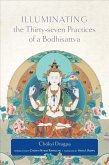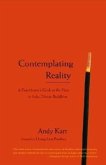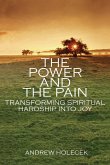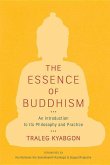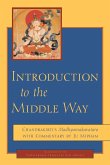The inspiring and eloquent verses found in The Thirty-seven Verses on the Practice of a Bodhisattva were composed by Gyalse Ngulchu Thogme (1295– 1369), an ancient Tibetan master and legendary exemplar of generosity and kindness. This classical text- a concise and easy-to-memorize distillation of the teachings presented in Shantideva' s masterwork The Way of the Bodhisattva- has been studied and followed by Tibetan monks and scholars for centuries. In this new translation, featuring the commentary of the beloved twentieth-century master Dilgo Khyentse, this treasure-text is made accessible and relevant to contemporary Buddhists.
What would be the practical implications of caring more about others than about yourself? This is the radical theme of this extraordinary set of instructions, a training manual composed in the fourteenth century by the Buddhist hermit Ngulchu Thogme, here explained in detail by one of the great Tibetan Buddhist masters of the twentieth century, Dilgo Khyentse. In the Mahayana tradition, those who have the courage to undertake the profound change of attitude required to develop true compassion are called bodhisattvas. Their great resolve-to consider others' needs as paramount, and thus to attain enlightenment for the sake of all living creatures-carries them beyond the limits imposed by the illusions of "I" and "mine," culminating in the direct realization of reality, transcending dualistic notions of self and other. This classic text presents ways that we can work with our own hearts and minds, starting wherever we find ourselves now, to unravel our small-minded preoccupations and discover our own potential for compassion, love, and wisdom. Many generations of Buddhist practitioners have been inspired by these teachings, and the great masters of all traditions have written numerous commentaries. Dilgo Khyentse's commentary is probably his most extensive recorded teaching on Mahayana practice.
What would be the practical implications of caring more about others than about yourself? This is the radical theme of this extraordinary set of instructions, a training manual composed in the fourteenth century by the Buddhist hermit Ngulchu Thogme, here explained in detail by one of the great Tibetan Buddhist masters of the twentieth century, Dilgo Khyentse. In the Mahayana tradition, those who have the courage to undertake the profound change of attitude required to develop true compassion are called bodhisattvas. Their great resolve-to consider others' needs as paramount, and thus to attain enlightenment for the sake of all living creatures-carries them beyond the limits imposed by the illusions of "I" and "mine," culminating in the direct realization of reality, transcending dualistic notions of self and other. This classic text presents ways that we can work with our own hearts and minds, starting wherever we find ourselves now, to unravel our small-minded preoccupations and discover our own potential for compassion, love, and wisdom. Many generations of Buddhist practitioners have been inspired by these teachings, and the great masters of all traditions have written numerous commentaries. Dilgo Khyentse's commentary is probably his most extensive recorded teaching on Mahayana practice.


